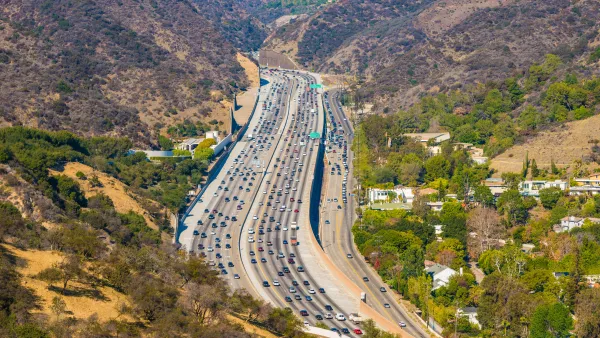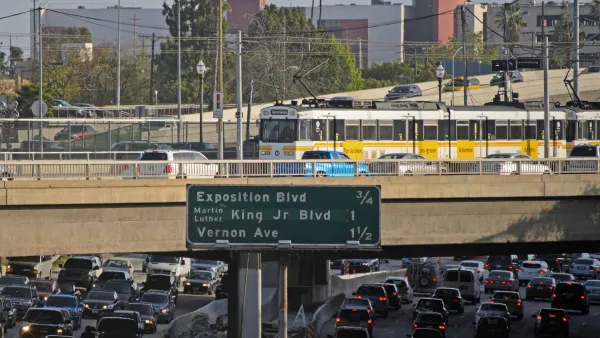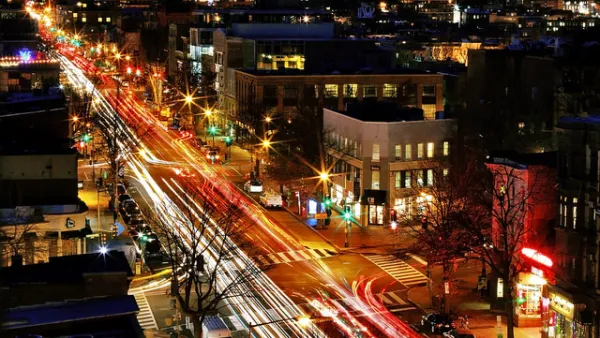Charging based on demand and for access is commonplace—except on roads.

"Riding the Metro at peak time, splurging on an additional fee to avoid the lunch line, receiving a discount for seeing a movie when few others choose to—we accept congestion pricing as a normal feature of everyday life," writes DJ Gribbin. So why, he wonders, is congestion pricing on roads consistently met with such resistance?
The time, economic, and environmental benefits of such strategies are clear, says Gribbin. And a variety of mechanisms exist for implementing congestion pricing, including managed lanes, high-occupancy vehicle lanes, and cordon pricing.
But a lack of action at the state and federal levels means cities have to step up to put congestion pricing into place on roadways. Gribbin points to the cordon pricing coming to New York City in 2021, a plan expected to generate $1.1 billion a year for transit service improvements. Washington, D.C., Chicago, and Los Angeles are also exploring congestion pricing options. "If all goes well, commuters in these three cities will have the ability to recover some of the 70 to 120 hours lost to congestion every year while reducing their environmental impact," he adds.
FULL STORY: Congestion pricing is all around us. Why is it taboo on our roads?

Analysis: Cybertruck Fatality Rate Far Exceeds That of Ford Pinto
The Tesla Cybertruck was recalled seven times last year.

National Parks Layoffs Will Cause Communities to Lose Billions
Thousands of essential park workers were laid off this week, just before the busy spring break season.

Retro-silient?: America’s First “Eco-burb,” The Woodlands Turns 50
A master-planned community north of Houston offers lessons on green infrastructure and resilient design, but falls short of its founder’s lofty affordability and walkability goals.

Test News Post 1
This is a summary

Analysis: Cybertruck Fatality Rate Far Exceeds That of Ford Pinto
The Tesla Cybertruck was recalled seven times last year.

Test News Headline 46
Test for the image on the front page.
Urban Design for Planners 1: Software Tools
This six-course series explores essential urban design concepts using open source software and equips planners with the tools they need to participate fully in the urban design process.
Planning for Universal Design
Learn the tools for implementing Universal Design in planning regulations.
EMC Planning Group, Inc.
Planetizen
Planetizen
Mpact (formerly Rail~Volution)
Great Falls Development Authority, Inc.
HUDs Office of Policy Development and Research
NYU Wagner Graduate School of Public Service




























